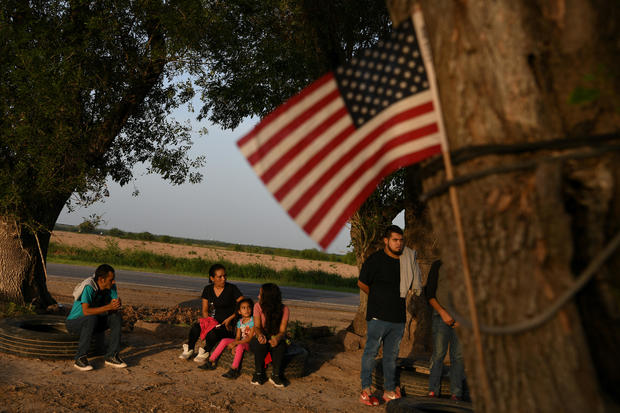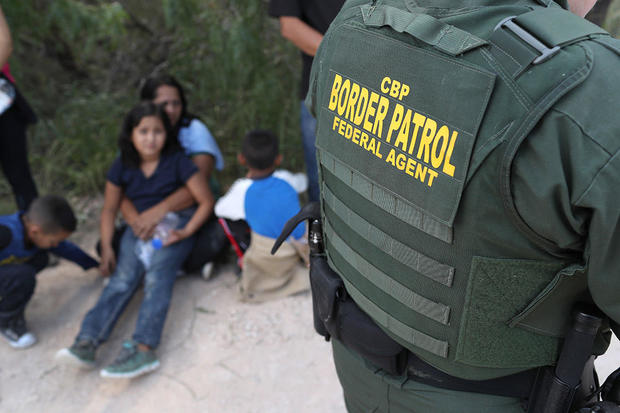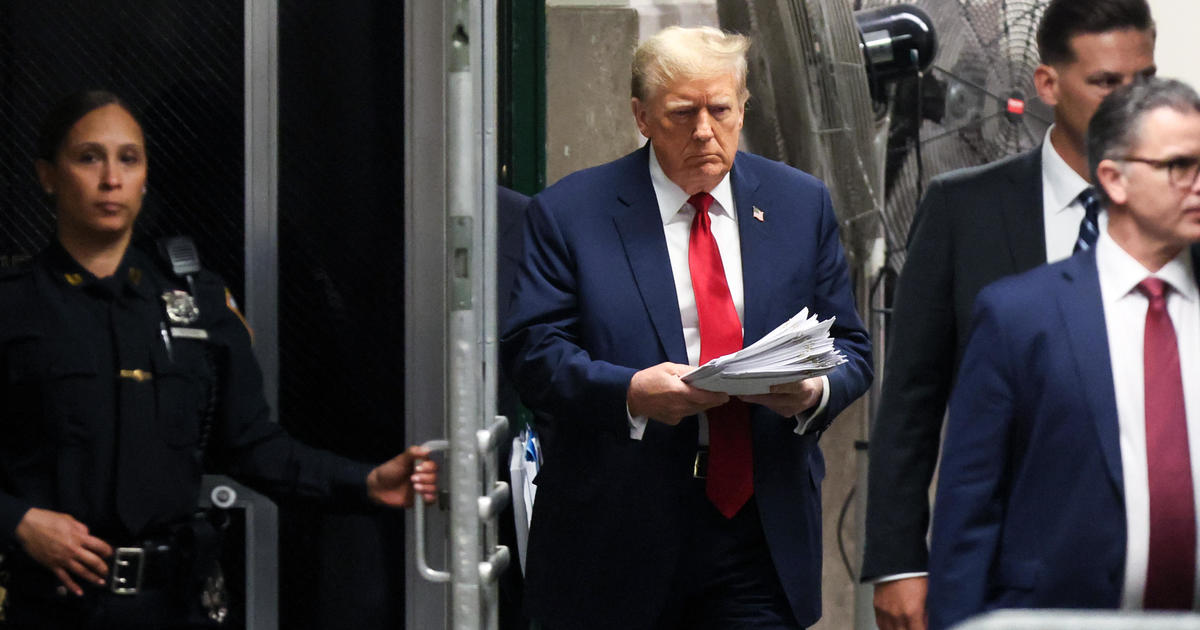Judge allows Trump administration's most restrictive asylum ban to continue
Washington — A federal judge on Wednesday declined to block a new rule that effectively bars most migrants from Central America and other countries from seeking asylum at the U.S.-Mexico border. The decision allows the Trump administration to implement for now its most ambitious effort yet to unilaterally overhaul the asylum system.
Judge Timothy Kelly of the U.S. District Court in Washington denied a request by several immigrant advocacy groups to issue an temporary order blocking the controversial asylum policy.
The rule, which went into effect last week, restricts access to the U.S. asylum system for non-Mexican migrants who traveled through Mexico and other countries to reach the southwestern border, but did not seek protection in those nations. Although designed to stem the flow of Central American migrants journeying north, the regulation also affects people from other parts of the world trying to reach the U.S. through Mexico — including Cubans, Venezuelans, Brazilians and central Africans, who have traveled to the U.S.-Mexico border in higher numbers this year.
Migrants who could prove they were victims of a "severe" form human trafficking or that they applied for protection in a third country and were later denied would be exempt from the rule.
The joint regulation by the Justice Department and the Department of Homeland Security represents a seismic change in the asylum system for border crossers. Before the rule, migrants who crossed into the U.S. illegally were allowed to claim asylum after being apprehended by Border Patrol officers. Most asylum-seeking families were typically released from immigration custody after less than 20 days in detention and allowed to remain in the U.S. while their cases were adjudicated.
Soon after it took effect, two lawsuits, including one spearheaded by the American Civil Liberties Union (ACLU), were filed to block the policy. The plaintiffs argued that the regulation was devised contrary to federal rule-making procedures and violated the 1952 Immigration and Nationality Act (INA), which allows most who set foot on American soil to seek asylum if they fear persecution in their homeland.
The lawsuit filed in Washington was brought by a group of advocacy groups, including the Refugee and Immigrant Center for Education and Legal Services (RAICES).
Judge Jon Tigar, who is reviewing the second lawsuit in the U.S. District Court in San Francisco, is scheduled to hear oral arguments on Wednesday afternoon. Late last year, Tigar halted a similar effort by the administration to prohibit migrants who cross the border illegally from being able to seek asylum.
The rule's roll-out has elicited condemnation from international groups.
In a rare public rebuke of domestic U.S. policy, the Office of the United Nations High Commissioner for Refugees — which receives U.S. funds — denounced the regulation as a "severe" effort that was not "in line" with international obligations for refugees.
"It will put vulnerable families at risk," High Commissioner Filippo Grandi said earlier in the week, noting that many migrants do find "effective international protection" in the countries they travel through to get to the U.S.-Mexico border. "It will undermine efforts by countries across the region to devise the coherent, collective responses that are needed."
However, the administration officials, who has often railed against "loopholes" in the U.S. asylum system, have strongly defended the rule, casting it as much-needed move for the government to deal with the months-long surge of Central America families heading towards the southern border and to fend off meritless claims from economic migrants.
Attorney General William Barr — who oversees the country's immigration courts — said the rule was also designed to crack down on "forum shopping by economic migrants," referring to a term used by immigration hardliners to describe the decision-making that they believe migrants engage in. They accuse migrants of preferring to seek asylum in the U.S., rather than in the countries along their journey that might be able to offer them refuge.
Although there was a dramatic drop last month in southern border apprehensions — attributed by officials mainly to Mexico's amped up immigration enforcement and the summer heat — U.S. border officers are still on track to make around 1 million arrests this year.






